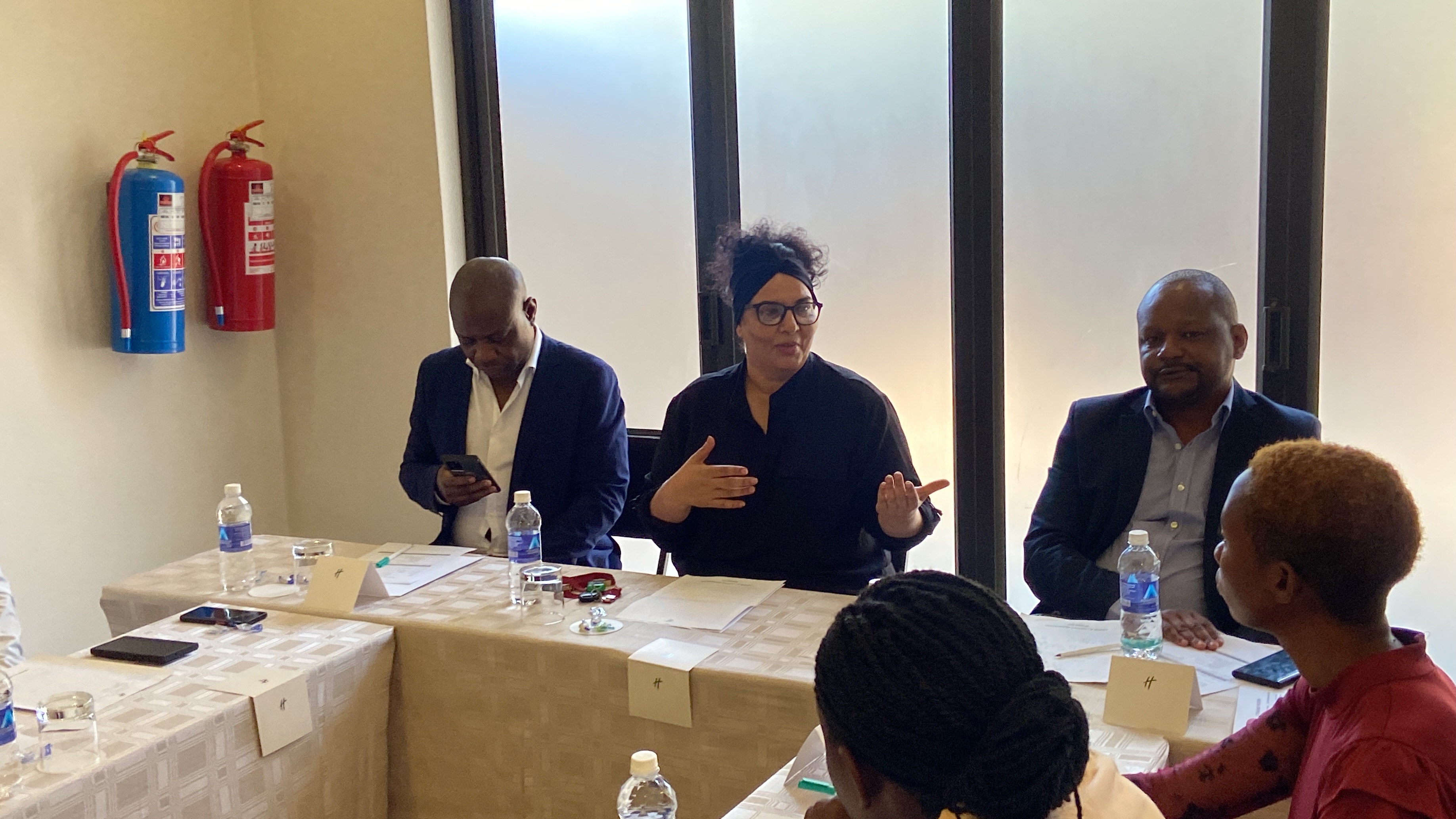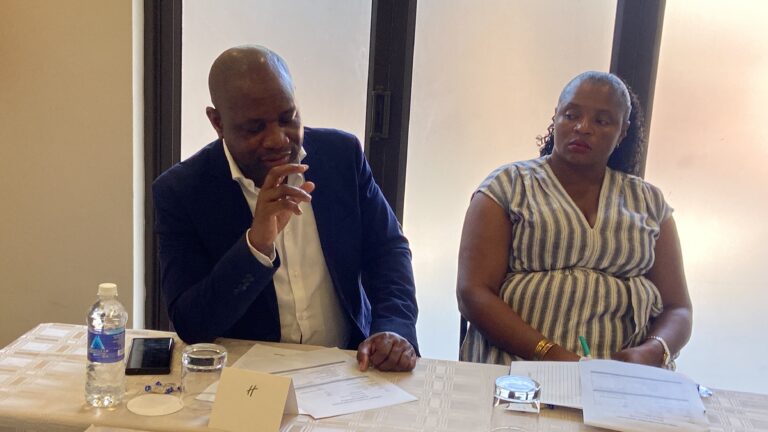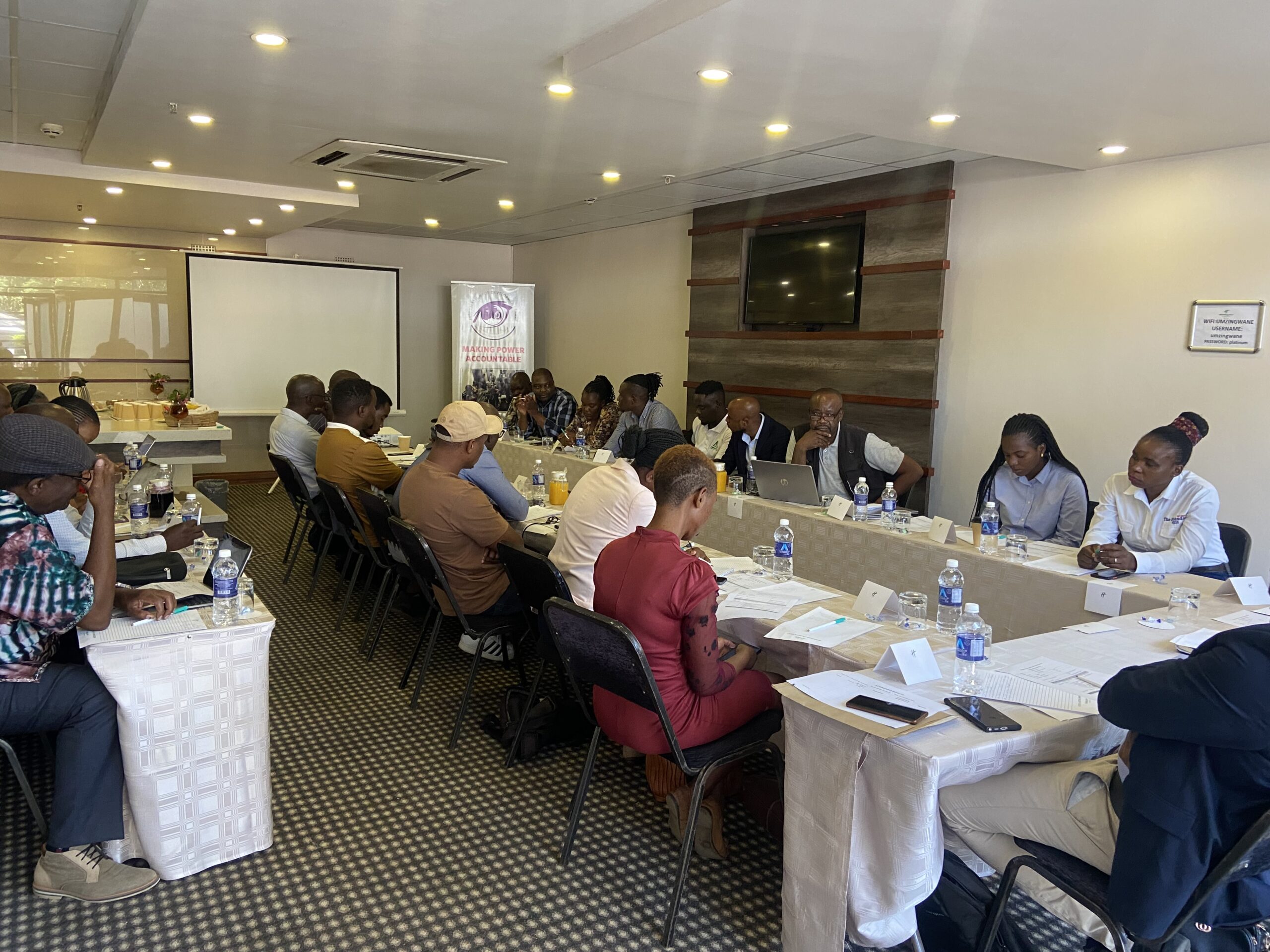Harare, Zimbabwe | Investigative journalists and relevant stakeholders must establish and strengthen strategic partnerships for enhanced impact and sustainability, participants at a recent seminar dialogue heard.
The collaborative investigative journalism dialogue, which was held in Harare last week, was organised by Information for Development Trust (IDT), a non-profit organisation supporting accountability journalism in Zimbabwe and Southern Africa.
It brought together investigative journalists, content creators, editors and mentors, anti-corruption champions and other like-minded civil society organisations.
Participants included representatives of non-profit institutions like Transparency International (Zimbabwe), the Zimbabwe Coalition on Debt and Development (Zimcodd) and the Anti-Corruption Trust of Southern Africa (ACT-SA).
In addition to both freelance and newsroom-based journalists, the seminar also involved several investigative media houses like Alpha Media Holdings (AMH) that publishes The Standard, NewsDay and The Zimbabwe Independent, NewsHawks, NewZimbabwe.com, Magamba Network and the Centre for Innovation and Technology (CITE).
“We are living in an information era in which media practitioners can’t just wish away strategic collaborations,” observed Reyhana Masters, the IDT chairperson who gave the opening remarks. “Such collaborations are needed to promote media sustainability and viability”.

Reyhana Masters (Second from left)
To ensure such sustainability, the media must devise new strategies of producing compelling and modern news content and sharing it, said Dumisani Muleya, the NewsHawks editor.
Muleya, who presented at the seminar, highlighted the evolving nature of journalism in the digital age, and called for journalists to uphold the core ethical rules of accuracy, objectivity, fairness and impartiality.
He said approaches to news production and sharing had undergone a revolution in the digital age even though the fundamentals of media storytelling remained the same.
“Journalism remains the same, guided by the same principles. What has changed are the methods, techniques and approaches primarily because of evolving technology, the ways of packaging and then content distribution,” said Muleya.
He urged media houses to move out of their respective silos and create collaborative hubs that would promote cross-sharing of sources, news tips and content and pool resources together to pursue stories.
“We must conceptualise ourselves not as standalone newsrooms, not as individual news organisations, but as platforms that must work in a collaborative using a network of journalists and relevant experts,” added Muleya.

Dumisani Muleya (Left)
Owen Gagare, the NewsHawks news editor, agreed with Muleya that, while cross-border collaborations added value to local investigative journalism, external partners sometimes tended to be manipulative and exploitative, imposing news pegs and values and withholding agreed financial rewards.
Financial constraints, slow adaptation to new technologies such as artificial intelligence, skills flight, a shrinking advertising market and systematic persecution have undermined investigative journalism over the years and participants agreed that collaborations would help build a hedge against such threats.
The IDT has, among other projects, extended an investigative journalism project focusing on public sector corruption and trans-border illicit financial flows.
“One key lesson we have learnt over the years of supporting investigative journalism is the need for strategic collaborations,” said Tawanda Majoni, the IDT director.
“For us, collaborations in investigative journalism must achieve two primary results: compelling content and pervasive content sharing. The rest, such as the discoverability of our products and projects, corrective responses and short-to-long-term sustainability, will follow from there,” he added.
Under the new project, IDT has adopted a more systematic approach to media collaborations.
“Most of you will appreciate that we have been doing different forms of collaborations since we started operating in 2016, working with different news houses and journalists as well civil society organisations and, at a relatively hyper-local level, community-based organisations, to harvest information,” said Majoni, who is also the editor of NewsHub Zimbabwe.
Going forward, he added, IDT will engage public governance, legal, academic and financial management experts, in addition to civil society and the media, in planning, producing and sharing investigative content.
This model will include the setting up of ad hoc committees bringing together journalists, mentors and trusted experts to discuss story ideas and methodologies that include information gathering and presentation techniques.
Selected partners, among them data experts, would also review story drafts collectively and suggest effective content-sharing methods without compromising the confidentiality of the story production process.
The seminar mapped thematic areas that required collaborative investigations, among them: mysterious wealth accumulation, procurement and tendering, money laundering projects, national and local budgets, drought relief manipulations, real estate, infrastructure development, emerging cross-border smuggling trends, space and land barons, public expenditure and the extractives.
The participants also agreed that future collaborations must seek to promote the protection of whistle-blowers as they are vital for investigative journalism.
Speakers urged “swarm reporting”, an approach whereby investigative journalists and media houses would come together and pursue topical issues from different but mutually agreed angles using shared resources.
For comments, Feedback and Opinions do get in touch with our editor on WhatsApp: +44 7949 297606.

For comments, Feedback and Opinions do get in touch with our editor on WhatsApp: +44 7949 297606.
